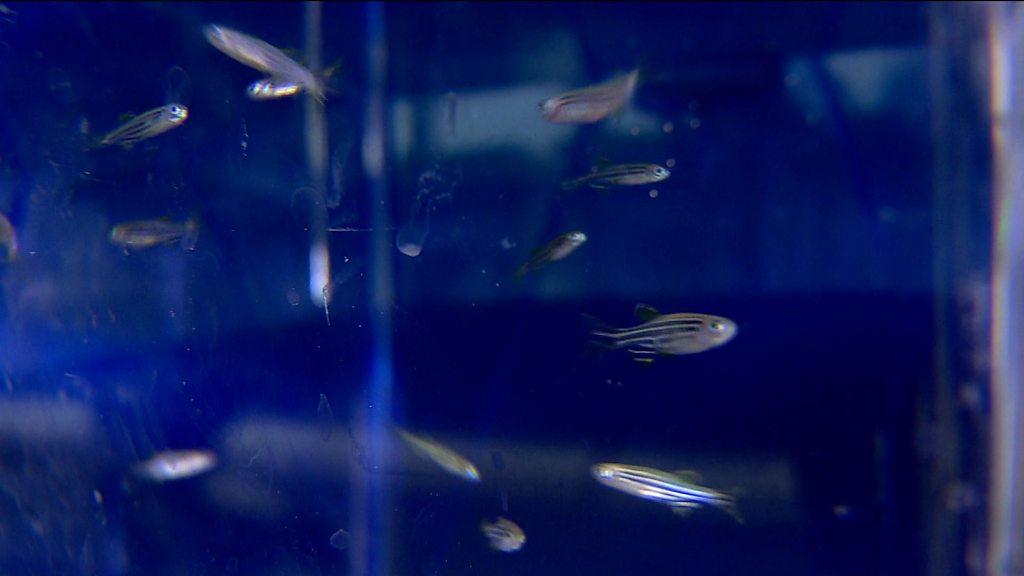Brain tumour found after three-year-old's nursery collapse
- Published
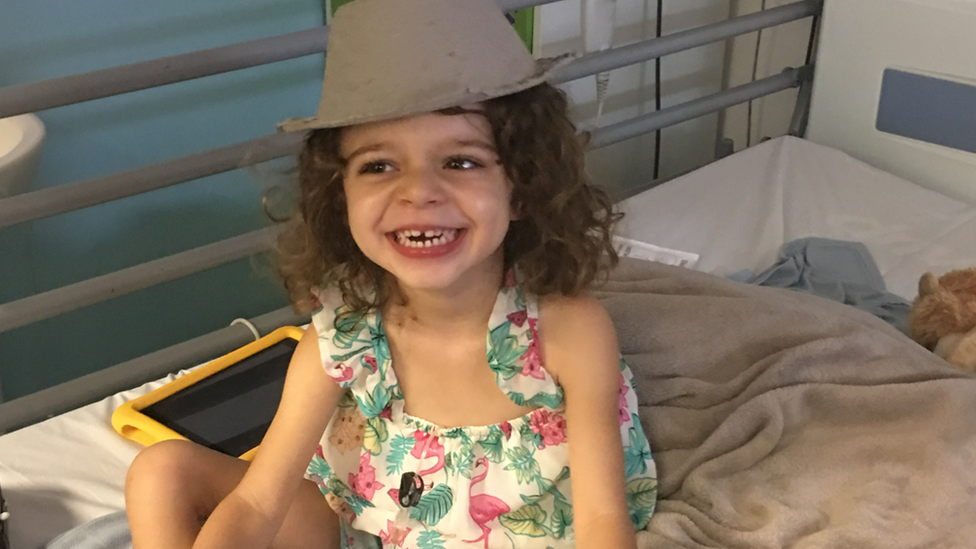
Marissa underwent a course of chemotherapy after a brain tumour was found
A mum is campaigning for more brain tumour research after her daughter was diagnosed with one when she collapsed following a day at nursery.
Carly Joseph from Sutton Coldfield praised medics for swiftly detecting the illness in Marissa who was three.
Marissa has since finished treatment and at the age of six is "her bright little self" again, Ms Joseph said.
The Brain Tumour Research charity said brain tumours killed more children than any other cancer.
Ms Joseph, 40, had gone to pick up Marissa from nursery after staff said she had vomited, but said: "By the time I got to her and was putting her in the car she wasn't moving and went all floppy like a ragdoll and was unconscious.
"I was sick with worry - I had no idea what was happening."
Staff at Good Hope Hospital in Sutton Coldfield discovered a shadow on her brain and a consultant from Royal Stoke Hospital then noticed flat pigmented spots on Marissa's skin.
Brain Tumour Research said they were a sign of neurofibromatosis type 1; a genetic mutation which could cause low-grade tumours in the body.
In Marissa's case, it had developed spontaneously since birth, the charity added.
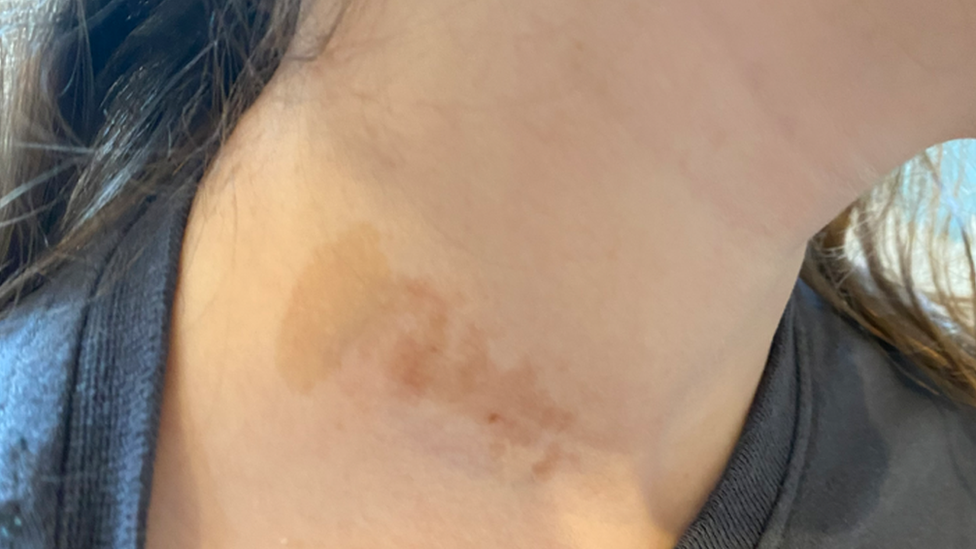
Doctors found what are known as "café au lait" marks on Marissa's skin
Further scans revealed a brain tumour which was believed to be inoperable and Marissa began a course of chemotherapy, which ended in July 2020.
Ms Joseph said to celebrate: "We had a socially-distanced gathering for Marissa with our friends and family in the street due to lockdown restrictions.
"We had cakes and Marissa got to ring the end-of-treatment bell with everyone cheering."
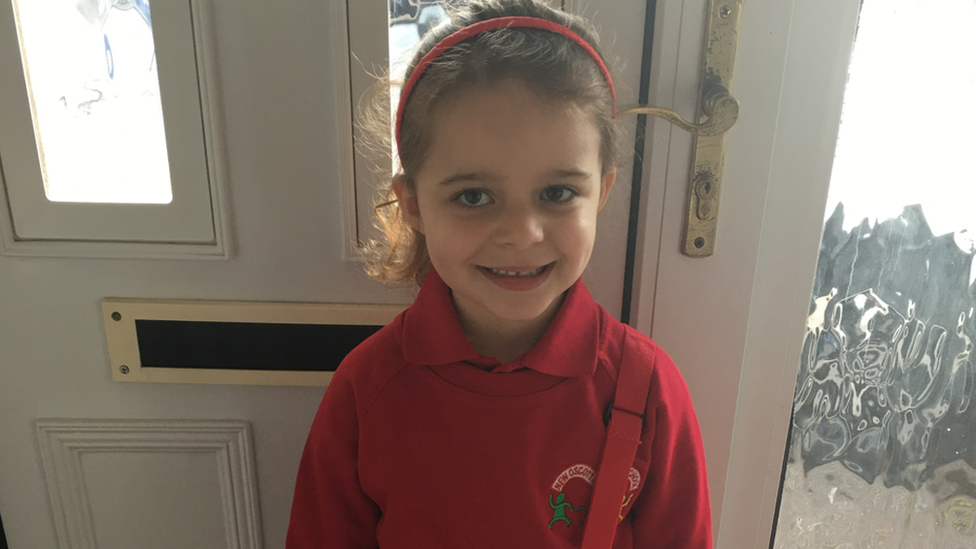
Marissa was able to start school in September 2020
Since ending her treatment, Marissa has had regular scans and eye tests and was able to start school in September 2020.
Her mother said she started behind other children of her age because of her illness and had been diagnosed with ADHD - common for those who have neurofibromatosis type 1.
She added: "Despite everything she's been through she's still the bright and happy girl she always was."
Brain Tumour Research said just 1% of the national spend on cancer research was allocated to brain tumours.
It has called for national spending on research to increase to £35m per year.

Follow BBC West Midlands on Facebook, external, Twitter, external and Instagram, external. Send your story ideas to: newsonline.westmidlands@bbc.co.uk, external
Related topics
- Published25 November 2021
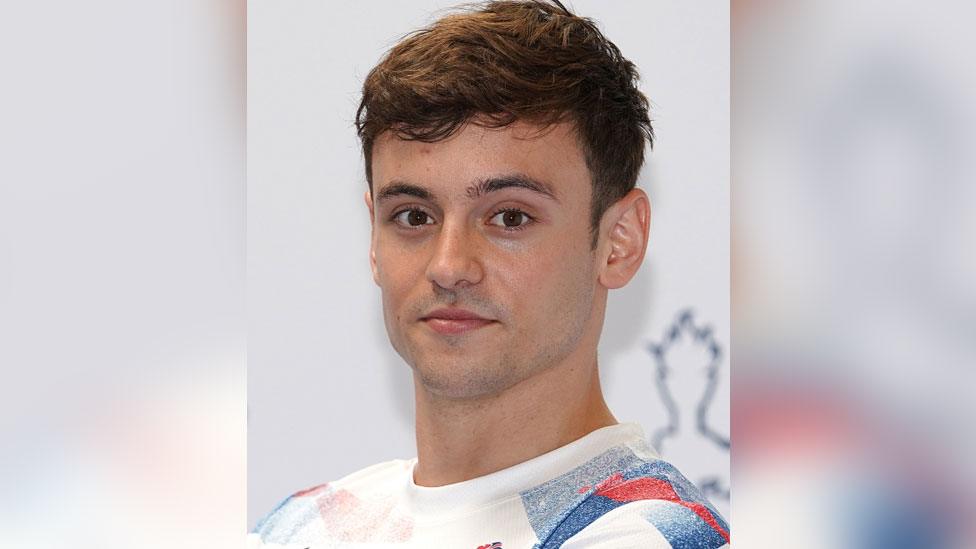
- Published23 September 2021
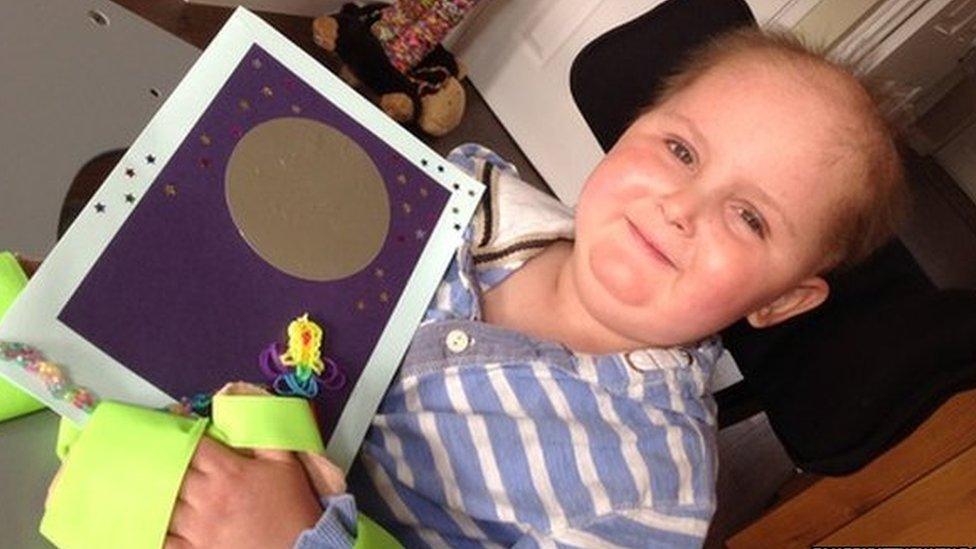
- Published5 October 2019
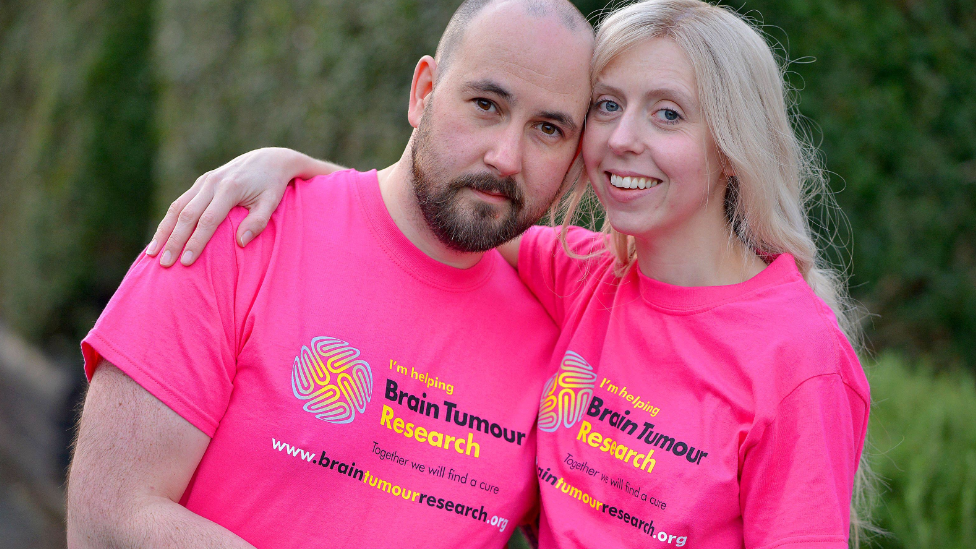
- Published22 November 2016
